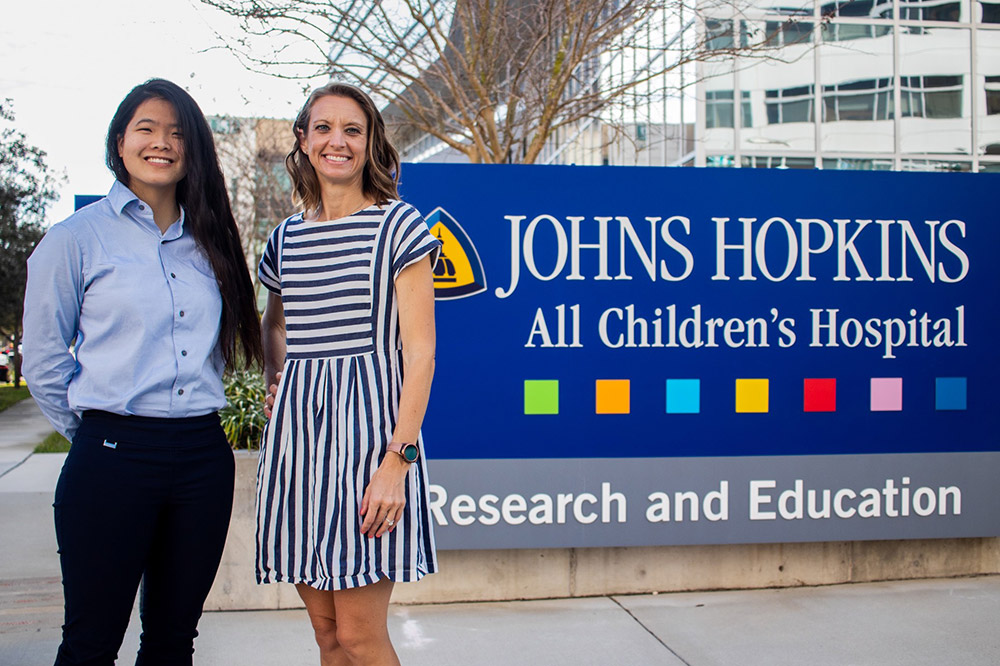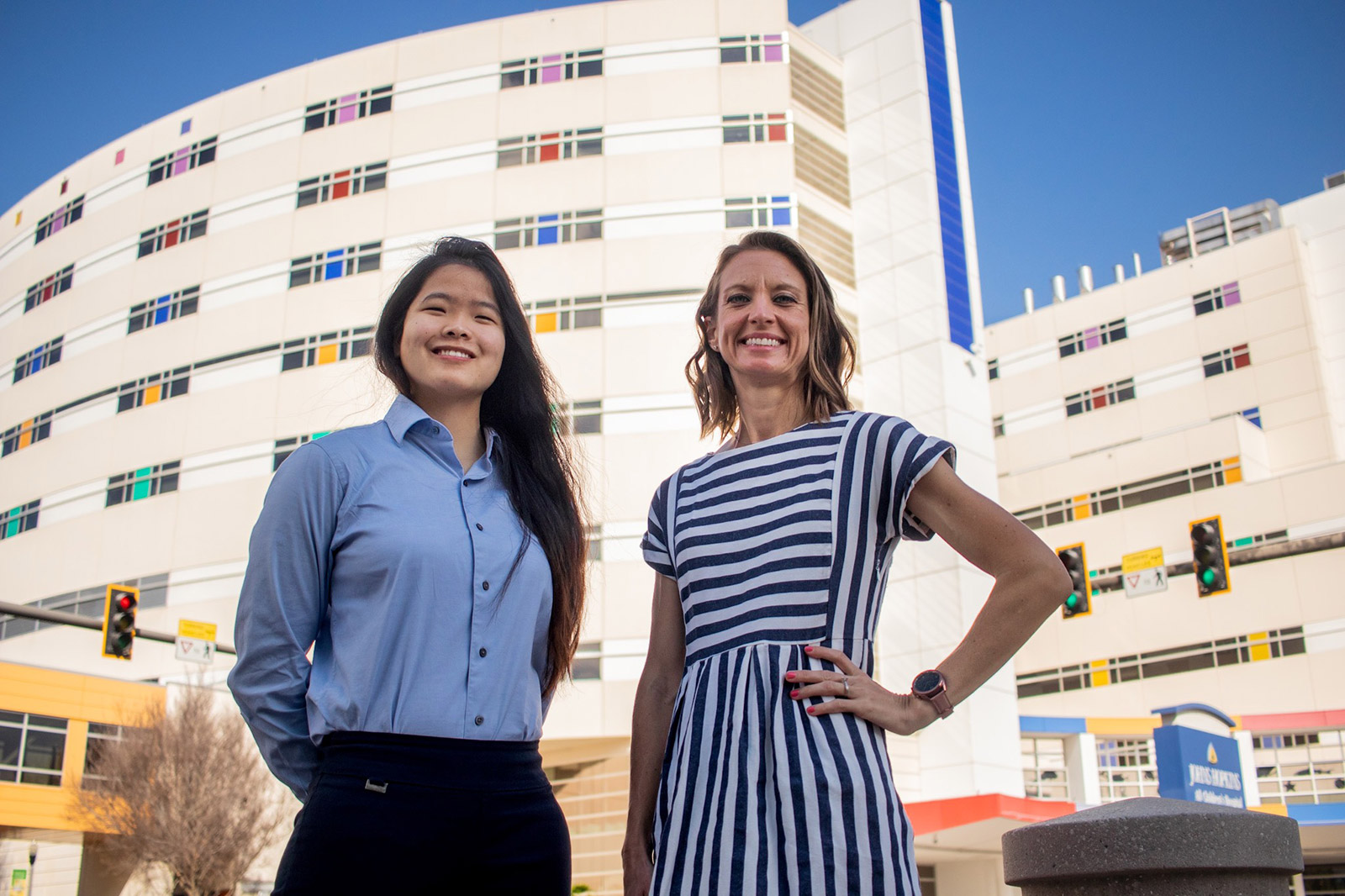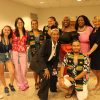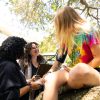Last year when Crystal Young-Erdos, Ph.D., assistant professor of chemistry at Eckerd College, was looking for a project for her upcoming sabbatical, she went to a place she had been before the pandemic stopped the world in its tracks.
A place where her research skills fit perfectly, and where she could take what she learned about fighting disease and bring it back to her classroom. She might even be able to involve an Eckerd student along the way.
Researchers at the Johns Hopkins All Children’s Hospital (ACH) Institute for Fundamental Biomedical Research (IFBR) in St. Petersburg are investigating health risks for women with two different patterns of body fat deposition. According to the hospital, “It is known that women with excess subcutaneous adipose tissue located in the abdomen (A-FAT), creating an “apple-shaped” body, are at greater risk for obesity-related health problems than women who weigh the same but carry excess hip and thigh subcutaneous fat (G-FAT), the kind of fat that creates a distinctive “pear” body shape.
“Their current efforts are focused on gaining a better understanding of the molecular differences between the two different body shapes created by A-FAT and G-FAT, and how each body shape is related to the prevalence of metabolic disease.”

Young-Erdos—who earned her doctorate from the University of Michigan, came to Eckerd in 2014, and is the mother of a 5-year-old and an 18-month-old—knew about the research going on at the IFBR. She and a group of faculty and administrators from Eckerd had toured their facilities in January 2020 and were talking about a collaboration between the College and the hospital. “Two months later,” Young-Erdos says, “the world shut down. The pandemic happened and those conversations halted.”
But not for good. Last year, Young-Erdos reached out to Timothy Osborne, Ph.D., associate dean for basic research and director of the IFBR, to renew interest in a research collaboration. “My skill sets are very much aligned with what’s going on there,” she says, “and I also wondered how we could get students involved.”
Osborne agreed. “Based on her training and expertise with RNA binding proteins,” he says, “her skill set and interests fit well with a key project in our lab on RNA binding proteins.” And what Young-Erdos learns at ACH, Osborne adds, her students can learn at Eckerd.
“She can adapt a lecture describing the research project she is working on here with us to describe the background, rationale and experimental plan followed [by] a bigger picture of where the research fits into the broader understanding of human health and disease,” Osborne says.
Young-Erdos says what she is working on now is a translational research project. “My work at Eckerd has been basic research. My students and I are using simple baker’s yeast as a model organism and investigating the molecular mechanism of a less characterized enzyme involved in making ribosomes, the machinery responsible for protein synthesis in all cells.
“Translational research, which is what I’m pursuing now, has a more direct human application. Our collaborators at the AdventHealth Translational Research Institute for Metabolism and Diabetes recruited the apple- or pear-shaped women and collected tissue samples. They then send the cells to us for a more molecular investigation. We want to know what’s going on inside the fat cells that could contribute to the difference in the prevalence for metabolic disease between these two groups of women.
“For me,” she adds, “the goal is twofold—to pursue a new research direction and establish a coalition with someone local, and to bridge Eckerd College and ACH and the research that’s going on there. The best way for me to accomplish that is to come here [to ACH] and see what’s going on. I know my students’ interests and skill sets. Could I then place them in a mutually beneficial experience?”
It’s already started. Eckerd junior YuHan Burgess, a Ford Scholar and computer science student from Bonita Springs, Florida, joined the Osborne Lab research team with Young-Erdos in early February. She did so through the Student Research Training Program, which gives students hands-on research experiences as they work with scientists at the IFBR.
“I am very fortunate to be given this internship opportunity in Dr. Osborne’s lab within the subject of bioinformatics,” YuHan says. “I am applying the skills I have learned in the classroom in a real-world setting that [has] implications on people’s lives and further research.”
Young-Erdos will resume teaching general chemistry and biochemistry at Eckerd in the fall. “But we’ve worked out an opportunity where I can also continue collaborating with the Osborne Lab beyond my leave,” she adds. “Eventually, I’d like to bring a student with me who I’ll train and will work alongside me. That’s my passion. To integrate the experience and provide meaningful research opportunities for my students. This has been fantastic.”









